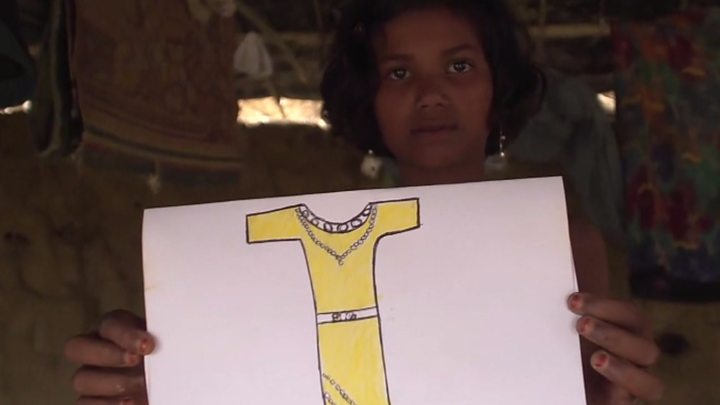Myanmar's de facto leader Aung San Suu Kyi is to miss next week's UN General Assembly debate as criticism of her handling of the Rohingya crisis grows.
Some 370,000 Rohingya Muslims have fled Rakhine state for Bangladesh since the outbreak of violence last month. Whole villages have been burned down.
The government has been accused by the UN of ethnic cleansing.
Myanmar's military says it is fighting Rohingya militants and denies reports that it is targeting civilians.
The Rohingya, a mostly Muslim minority in Buddhist-majority Rakhine, have long experienced persecution in Myanmar, which says they are illegal immigrants. They have lived in Myanmar for generations but are denied citizenship.
The UN Security Council is due to meet on Wednesday to discuss the crisis.
Ms Suu Kyi has been criticised by former supporters in the West for failing to do enough to prevent the violence.
The Nobel Peace Prize winner, who lived under house arrest for 15 years for her pro-democracy activism, is widely seen as the head of government.
Fellow Nobel laureates, including the Dalai Lama, Archbishop Desmond Tutu and Malala Yousafzai, have called on Ms Suu Kyi to stop the violence.
Ms Suu Kyi had been expected to participate in discussions at the General Assembly session in New York, which runs from 19 to 25 September.
A government spokesman, Aung Shin, told Reuters news agency that "perhaps" Ms Suu Kyi has "more pressing matters to deal with", adding: "She's never afraid of facing criticism or confronting problems."
In her first address to the General Assembly as national leader in September last year, Ms Suu Kyi defended her government's efforts to resolve the crisis over the treatment of the Rohingya.
Myanmar's envoy to the UN has blamed Rohingya insurgents for the violence in Rakhine state and said that his country - also known as Burma - would never tolerate such atrocities.
But many of those who have fled say troops responded to attacks by Rohingya militants on 25 August with a brutal campaign of violence and village burnings aimed at driving them out.
Though access to Rakhine state is heavily controlled, the BBC's Jonathan Head was one of few journalists taken on government-run tour recently and witnessed Muslim villages being burned with police doing nothing to stop it.
On Tuesday, Myanmar denounced the suggestion by the UN High Commissioner for Human Rights, Zeid Raad al-Hussein, that its treatment of Rohingya Muslims amounted to "ethnic cleansing".
Bangladesh's Prime Minister Sheikh Hasina called on Myanmar to take the Rohingya refugees back.
"My personal message is very clear that they should consider this situation with humanity because these people, the children, the women, they are suffering," she told the BBC on Tuesday.
"These people belong to Myanmar, for 100 years or more they have stayed there. How can they deny they are not their citizens?"
Â





